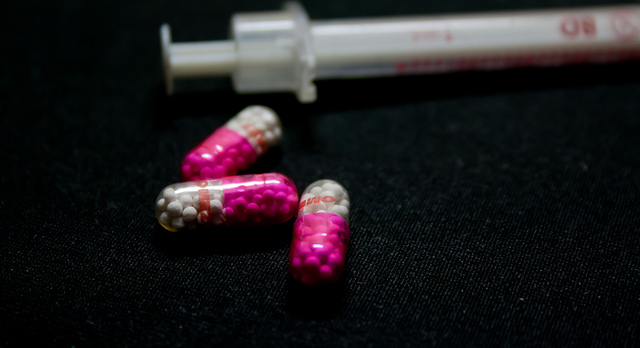Two recent exposes reveal how easy it is for pharmaceutical companies to raise prices on what should be low-cost drugs and make out like bandits. The reason: Doctors can prescribe virtually all drugs at any price; and, in most cases, insurers cover them, regardless of their value. So, drugmakers can effectively pay doctors to prescribe their high-priced drugs over less costly ones that are as effective.
Evan Hughes explains in The Pain Hustlers for The New York Times that “Selling drugs is a relationship business.” He details how a small pharmaceutical company, Insys, identified and targeted doctors whom Insys knew to be big opioid prescribers. And, it persuaded these doctors to prescribe the Insys high-priced opioid. To clinch the deal, the drugmaker offered the doctors the ability to serve on their “speakers’ program” for a tidy sum of money.
The “speakers’ program” provided doctors with a forum to promote the opioid to other doctors; it also could be little more than a group dinner. Either way, it enabled the pharmaceutical company to justify monetary payments to the doctors. And, it led to a large number of sales and nearly $100 million in revenue for Insys in the year after it got one doctor to prescribe its opioid drug. Hughes writes, “The drug was so expensive that a single clinic, led by a motivated doctor, could generate millions of dollars in revenue.”
Lesley Stahl for CBS News tells the story of how the inflated cost of one prescription drug in Rockford, Illinois, a suburb of Chicago, busted the city’s health budget, keeping it from hiring policemen and firefighters. Rockford self-financed the cost of drugs for its employees.
One Rockford employee needed Acthar, a drug that treats, among other things, infantile spasms, a rare and fatal condition, for his baby twins. The drug has been on the market, unchanged since 1952. And, 16 years ago, it cost $40 for a dose. Now, the same drug costs more than $40,000.
Achtar’s manufacturer, Mallinckrodt, which bought the drug in 2014, settled charges of price fixing and anti-trust violations with the FTC for $100 million. But, that’s a small penalty. Mallinckrodt has revenues of over $1 billion a year.
The price hikes began when Questcor bought the right to produce the drug. Questcor also bought Acthar’s competitor drug, Synecthen, eliminating the competition in the US. Synecthen sells for $33 in Canada. Questcor raised the price of Achtar to $32,000 a vial.
Questcor also marketed Achtar for use by older adults with a variety of health conditions, including rheumatoid arthritis, without any clinical evidence of its efficacy. Achtar had been approved for these other uses in 1952, but back then approval did not require a showing of efficacy.
Dr. Peter Bach explains that there are better and less expensive drugs available for older adults with these conditions. But, Mallinckrodt pays doctors millions to prescribe its drug over the less expensive ones. So, they do. Medicare now spends more than $500 million a year on Achtar.
Express Scripts, the Pharmacy Benefit Manager (PBM), Acthar’s exclusive distributor, is also charged with bringing down the price of Acthar. But, it appears not to have done its job. It could have used its leverage to reduce Acthar’s price had it asked another company to manufacture a generic version of the drug. When employees in Rockford needed another drug that had experienced a 500-fold price spike, from $13.50 to $750, in one day, Express Scripts had found a generic manufacturer to produce that drug for a low price.
But Express Scripts, like its two large rival Pharmacy Benefit Managers, is conflicted. It makes more money the more doses of Acthar it sells at a high price. Dr. Bach notes that the heart of the problem is that every entity in the drug distribution chain, pharmacies, hospitals, doctors (and insurers, though Bach does not mention them) all have incentives to sell higher-priced drugs.
So long as Congress does not insist that we pay no more than what other wealthy countries pay for their drugs, Americans, both the taxpayers and the people who need costly drugs, will pay too high a price for them.
___________
Now available: The Ten Should-Do’s for Your Health, Purse and Peace of Mind, Chapter One of Aging, Schmaging, by Diane Archer. For $5, you can help yourself and the people you love, and you can help support Just Care.
Here’s more from Just Care:










